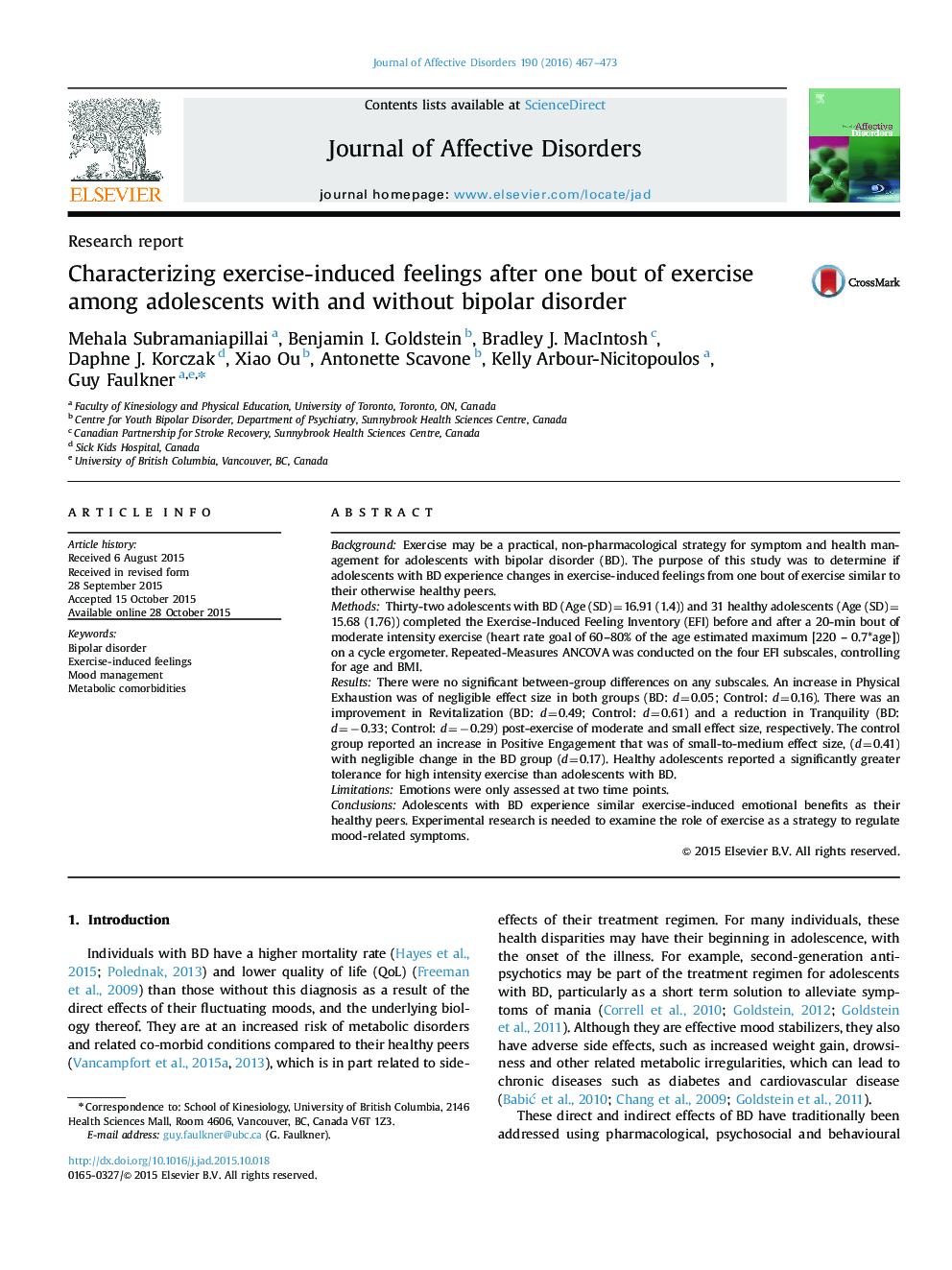| Article ID | Journal | Published Year | Pages | File Type |
|---|---|---|---|---|
| 6230765 | Journal of Affective Disorders | 2016 | 7 Pages |
â¢Adolescents with BDBD experience similar exercise-induced emotional benefits as healthy peers.â¢However, increase in Positive Engagement was small compared to a medium effect among controls.â¢Future studies need to examine affect during exercise and after a resting period.
BackgroundExercise may be a practical, non-pharmacological strategy for symptom and health management for adolescents with bipolar disorder (BD). The purpose of this study was to determine if adolescents with BD experience changes in exercise-induced feelings from one bout of exercise similar to their otherwise healthy peers.MethodsThirty-two adolescents with BD (Age (SD)=16.91 (1.4)) and 31 healthy adolescents (Age (SD)=15.68 (1.76)) completed the Exercise-Induced Feeling Inventory (EFI) before and after a 20-min bout of moderate intensity exercise (heart rate goal of 60-80% of the age estimated maximum [220 - 0.7*age]) on a cycle ergometer. Repeated-Measures ANCOVA was conducted on the four EFI subscales, controlling for age and BMI.ResultsThere were no significant between-group differences on any subscales. An increase in Physical Exhaustion was of negligible effect size in both groups (BD: d=0.05; Control: d=0.16). There was an improvement in Revitalization (BD: d=0.49; Control: d=0.61) and a reduction in Tranquility (BD: d=â0.33; Control: d=â0.29) post-exercise of moderate and small effect size, respectively. The control group reported an increase in Positive Engagement that was of small-to-medium effect size, (d=0.41) with negligible change in the BD group (d=0.17). Healthy adolescents reported a significantly greater tolerance for high intensity exercise than adolescents with BD.LimitationsEmotions were only assessed at two time points.ConclusionsAdolescents with BD experience similar exercise-induced emotional benefits as their healthy peers. Experimental research is needed to examine the role of exercise as a strategy to regulate mood-related symptoms.
